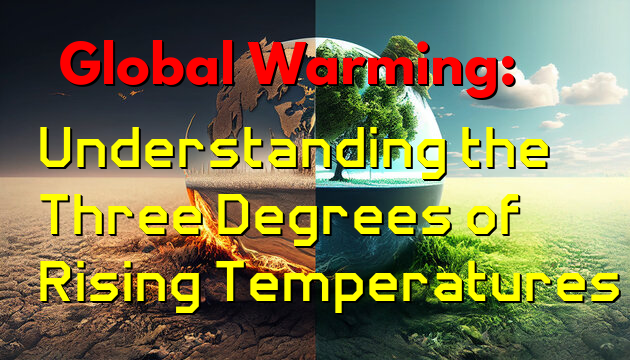An important factor not covered in this film is that a 3C world is very likely to trigger a number of potentially very large, self-reinforcing feedbacks – in other words unstoppable once triggered. For example, the melting of circumpolar permafrost (releasing methane) , conversion of the Amazon Basin to a dry savannah ecosystem, the collapse of the Antarctic ice shelves and ocean acidification is by no means an exhaustive list. And yet, despite this, governments still seem to be trapped in a dithering, lethargic state of procrastination.
My friend who lives in Italy have this to add – I’ve been living in Rome, Italy for the past decade and last summer we experienced extreme heat like never before. We had a full week at +43°C with peaks of 50°C around the city. The Tevere river levels were so low that you could see the river plate and at sometime you could walk from one side to the other. The medium temperature in Rome last summer was around 37°C that’s too much.
Another friend from US shares his opinion – I can’t speak for other parts of the world but here in Phoenix we’ve had tremendous growth over the last twenty years. The city is spreading out into the desert. That means more paved roads, parking lots and buildings. This creates a heat dome or a heat island effect. Maybe it would be better for urban growth to go vertically instead of horizontally. The City of Phoenix started its Cool Pavement Program a couple of years ago. I’m hoping this program will mitigate the effects of our urban heat island.
My other friend add this – Im from Montreal Canada and I remember as a kid we used to get super cold winter that goes up to -37 celcius and is usually around -28 celcius. Now winters can barely reach -34 celcius and the temperature is now around -24 celcius. Summer temperatures didn’t really change, but the felt temperature tends to get higher each year due to the higher humidity and summer rains are getting heavier and less and less frequent.
Another friend – I live in Luxembourg and climate change is really noticeable here. A few years ago, during the night temperatures would drop to about -10 degrees Celsius, but now they barely drop to -5 degrees Celsius during the night. Also, snowfall would be very frequent and the snow could last for days, but now it is much rarer and even when it does snow quite a lot, the snow melts after a few hours.
Friend from Greece – I live in Greece in a small town here.We have a fair amount of rivers around here and the weather in the summer was a what you expected.Since 2019 the weather has gone mad.We see sadden pouring of rains huge amount in just 15 mins.We actually had floods since it rained so much 2 times this summer and the amount of rain was insane in just unders 20 mins.Last year we had the hottest autumn and it extended to early December a month more than usual.This year we still have a lot of sun and the temperature is quite high for the season as well.
Another friend from UK – UK citizen here. We’re currently going through what is the hottest heatwave we’ve ever had and temperatures in my city are currently at 38 degrees c moving up to 40 which will be the hottest temperature ever recorded and this has been going on for years each year getting hotter and hotter. While most people in my country are enjoying the weather as it is a rarity I have for a while been panicking as I know that this is not natural weather for my country and it’s scary.
—
I think they should show how it could affect the first world specifically the US because many Americans don’t care especially if the weather seems normal. But here’s how.
New Orleans could be underwater, the mega drought could make the desert Southwest unlivable or Atleast become the new rust belt. The South will face dangerous heat and wet bulb temperatures, agriculture could be decimated by the mega droughts of the west and the places that aren’t as affected will become very expensive that it could could many social problems.
—
The issue with rising global temperatures due to greenhouse gas emissions is that it’s not merely a problem that can be addressed scientifically/technologically, it’s largely political and capitalistic as well. The big benefactors of the fossil fuel industry, private and governmental, may not see the incentive to switch up their practices and reduce their profits in the short term for long term global benefits. It’s classic short term thinking vs. long term thinking. Even with potentially resolvable technologies and infrastructure, it still requires that there be a strong political will to put these into place–even if that means short term losses in terms of profit, for long term investment. But the entire political structure is geared towards short term thinking vs. long term thinking in light of elections and reelection campaigns, so progress is slow at best.
![Rudraveera Samudhbhava Hanuman [Part-2]](https://i0.wp.com/cosmopolitanhub.com/wp-content/uploads/2024/11/MPZ3A1730460591.png?fit=262%2C300&ssl=1)









![Rudraveera Samudhbhava Hanuman [Part-2]](https://i0.wp.com/cosmopolitanhub.com/wp-content/uploads/2024/11/MPZ3A1730460591.png?fit=640%2C734&ssl=1)









+ There are no comments
Add yours